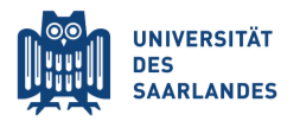Talk by Prof. Dr. Peer Bork
April 2, 2023 2023-04-02 2:07On Wednesday, December 12, 2018, Prof. Dr. Peer Bork (European Molecular Biology Laboratory (EMBL), Heidelberg, Germany) will give a lecture as part of the ZBI “Distinguished Speaker Series” on the topic “Microbiome analysis of the human gut and beyond”.
Abstract
It is becoming clear that microbes have more impact on humans and the planet than previously appreciated. For example, the human gut microbiome, that is the totality of microbes inhabiting our intestines, is a complex system, is still little understood and it is not even clear how the healthy state(s) should be defined, but an increasing number of diseases is being associated with dysbiosis of the microbiome, often implied by metagenome-wide association studies (MWAS). MWAS do not reveal causalities, but disease associations and thus can still be a starting point for diagnostics, as I will illustrate using colorectal cancer (Zeller et al., Mol.Sys.Biol., 2014). MWAS results are also often indirect or confounded (Schmidt et al, Cell 2018), the latter we could demonstrate for type 2 diabetes, where the intake of the drug metformin rather than the disease itself leads to the association with the gut microbiome (Forslund et al., Nature 2015). In an in vitro screen of 1200 marketed drugs against each of 40 human gut bacteria we could show that a quarter of all non-antibiotic drugs directly inhibit at least one gut microbial strain (Maier et al., Nature, 2018). Drugs, when given in combination, often change their microbial inhibition spectrum, many become species or even strain-specific (Brochado et al, Nature 2018), a resolution level that is becoming also achievable in MWAS (Schloissnig et al. 2013). Using single nucleotide variants (SNVs) we are able, for example, to trace donor and recipient SNVs after faecal microbiota transplantation (Li et al., Science 2016) or to study the dynamics of the microbiome, starting at birth (Korpela et al., Genome Res. 2018). As most of our gut microbes are coming from the environment, it is crucial to study biodiversity and interactions of microbes at planetary scale. The feasibility of such a global approach is illustrated by (i) the TARA oceans project, surveying the microbial diversity of this vast ecosystem by studying plankton in all major ocean regions (Bork et al., Science 2015 and refs therein) and (ii) global topsoil microbiomics (Bahram et al., Nature, 2018), highlighting regional strain pools and antibiotic resistance gene reservoirs.

